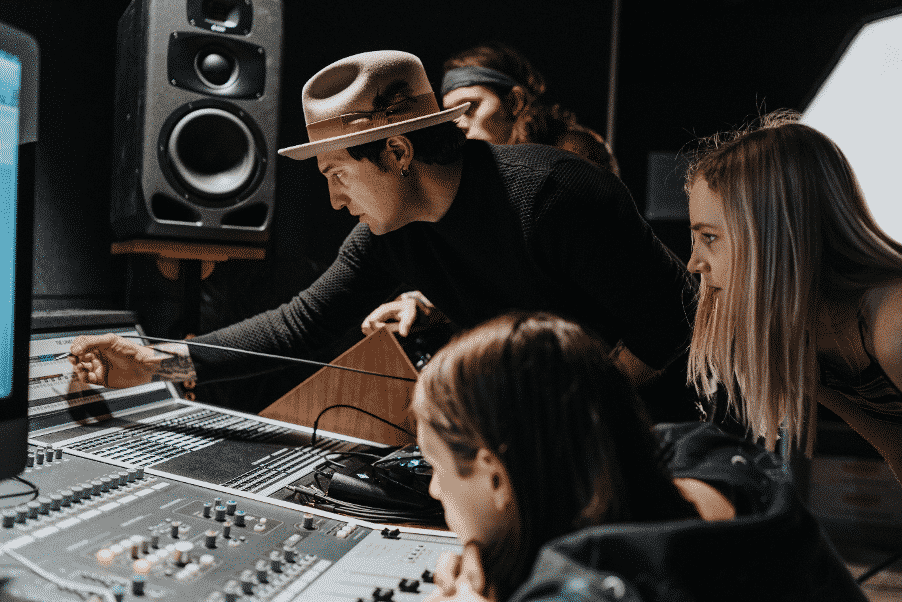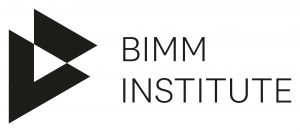BA (Hons) Music Production
How music is recorded, mixed, and mastered is as integral to the creative process as composition and performance.
Our BA (Hons) Music Production course gives you the chance to create music and sound in a variety of contexts. As well as addressing the ‘how?’ of music and sound production, the course also tackles the ‘why?’; providing students with a deeper understanding of philosophies, workflows and future-proof technical approaches to music and sound production. Fundamentally, this course allows you to pursue a fulfilling career in a range of music and creative industries roles.
The course will provide you with everything you need to bring your technical knowledge and creativity to real-word, live and studio settings. You’ll know the fundamentals required to collaborate with others, work with artists, and record other musicians’ sounds. However, you’ll also learn all you need to create your own electronic music and develop your skills as a potential future artist, remixer, programmer or game audio designer.
During the course, you’ll undertake hands-on learning in our high-tech facilities, and have direct access to cutting-edge equipment and software. You will also understand the technical requirements of a professional creative brief and know the effective approaches to answer it, implementing production concepts that you’ve learned and incorporating appropriate terminology. Our world-class industry lecturers – who know the ins and outs of the creative process – will be with you every step of the way, offering direction and support.

Through the core modules, you’ll focus on primary areas such Approaches to Production and Workflows, Production in Context, Studio Practice & Engineering, and Answering a Creative Media Brief. Alongside developing your technical knowledge, you’ll broaden your general knowledge of the industry, helping you to identify your place within it.
You will also have the opportunity to choose modules, such as Game Sound & Music, Electroacoustic Composition, and Vocal Capture and Production. These optional modules will help you to focus your studies and create the career route that’s right for you. The options you choose can help you forge a successful career in a range of music-based industries, such as game audio industries, electronic music, the recording industry, the live music industry, the film and TV industry, the audio post-production industry and education industry.
Ultimately, you’ll build the necessary skills and understanding you need to become a successful, collaborative music producer, with a sustainable career in the music industry.
So, what are you waiting for? Start your career in Music Production today.

Course specification
Mode of attendance: Full-time
Length of course: This course is taught as a three-year course at levels four, five, and six.
Awarding institution: BIMM University
Campus delivery: Berlin
Language of study: English
Final award: BA (Hons) Music Production
Minimum requirements
Successful completion of a BIMM admissions assessment.
Minimum of 32 UCAS points, equivalent to:
- 2 A-levels at Grade E or above
- Award of Abitur with overall average grade of 3.0 including a minimum grade of 10 on the English component (LF) on the Abitur
- BTEC Level 3 equivalent, and normally three GCSEs at a minimum grade C/4, including English Language.
IELTS 6.0 with a minimum of 5.5 to be achieved in each band.
Progression
Graduates can progress directly to employment in the music industry in roles such as an electronic music artist, music media producer, interactive game audio designer, sound engineer, or teacher.
Course fees
As part of Europe’s most successful group of music colleges, BIMM Music Institute is uniquely positioned to offer outstanding value and quality.
We’re dedicated to giving our students the best music education possible – which means accessing our globally successful first-rate lecturers in high-tech locations at the heart of Germany’s music scene.
Such cutting-edge facilities can be expensive, but we make sure all BIMM Music Institute courses are great value for money – representing a practical and affordable investment for your future career in the music industry.
Choose your optional modules.
Our undergraduate degree courses allow you to define your own route to success via a range of optional modules. First, you’ll learn the necessary employability skills and find where you’ll fit in the industry. Then, you’ll be able to build your course according to your interests and career aspirations.
The optional modules advertised as available for BIMM Music Institute courses are subject to variation dependant on minimum student numbers and the availability of specialist resources at each college (Please refer to our terms and conditions for further detail).
There were no results for your search
Any questions?
For any questions regarding our courses or if you’d like more information on how to apply to BIMM Music Institute, please contact our Admissions Team on +49 (0)30 311 99 186 or email [email protected].


